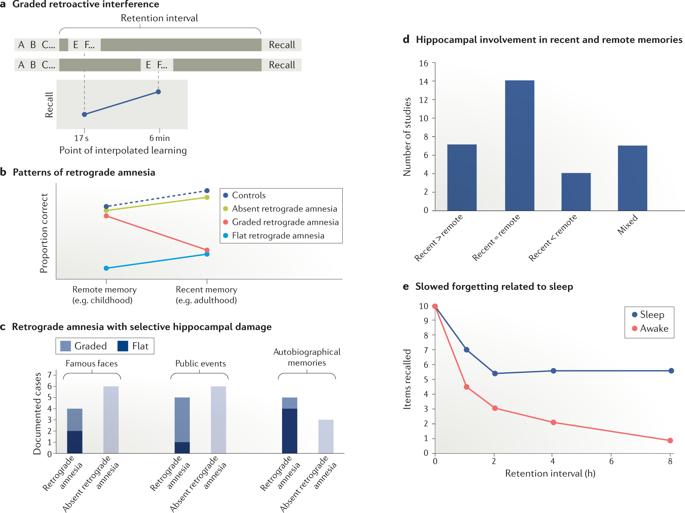当前位置:
X-MOL 学术
›
Nat. Rev. Neurosci.
›
论文详情
Our official English website, www.x-mol.net, welcomes your feedback! (Note: you will need to create a separate account there.)
A contextual binding theory of episodic memory: systems consolidation reconsidered.
Nature Reviews Neuroscience ( IF 34.7 ) Pub Date : 2019-06-01 , DOI: 10.1038/s41583-019-0150-4 Andrew P Yonelinas 1 , Charan Ranganath 1 , Arne D Ekstrom 2 , Brian J Wiltgen 1
Nature Reviews Neuroscience ( IF 34.7 ) Pub Date : 2019-06-01 , DOI: 10.1038/s41583-019-0150-4 Andrew P Yonelinas 1 , Charan Ranganath 1 , Arne D Ekstrom 2 , Brian J Wiltgen 1
Affiliation

|
Episodic memory reflects the ability to recollect the temporal and spatial context of past experiences. Episodic memories depend on the hippocampus but have been proposed to undergo rapid forgetting unless consolidated during offline periods such as sleep to neocortical areas for long-term storage. Here, we propose an alternative to this standard systems consolidation theory (SSCT) - a contextual binding account - in which the hippocampus binds item-related and context-related information. We compare these accounts in light of behavioural, lesion, neuroimaging and sleep studies of episodic memory and contend that forgetting is largely due to contextual interference, episodic memory remains dependent on the hippocampus across time, contextual drift produces post-encoding activity and sleep benefits memory by reducing contextual interference.
中文翻译:

情境记忆的上下文约束理论:重新考虑系统整合。
情景记忆反映了回忆过去经验的时空背景的能力。发作性记忆依赖于海马体,但已提出要经历快速的遗忘,除非在离线时期如睡眠期间进入新皮层区域以进行长期存储而巩固。在这里,我们提出了一种替代此标准系统合并理论(SSCT)的方式-上下文绑定帐户-在其中海马绑定项目相关和上下文相关的信息。我们根据行为记忆的病态,病变,神经影像学和睡眠研究比较了这些因素,并认为忘记很大程度上是由于情境干扰,情节性记忆依存于整个时间依赖于海马,情境漂移产生了编码后活动,而睡眠有益记忆通过减少上下文干扰。
更新日期:2019-07-05
中文翻译:

情境记忆的上下文约束理论:重新考虑系统整合。
情景记忆反映了回忆过去经验的时空背景的能力。发作性记忆依赖于海马体,但已提出要经历快速的遗忘,除非在离线时期如睡眠期间进入新皮层区域以进行长期存储而巩固。在这里,我们提出了一种替代此标准系统合并理论(SSCT)的方式-上下文绑定帐户-在其中海马绑定项目相关和上下文相关的信息。我们根据行为记忆的病态,病变,神经影像学和睡眠研究比较了这些因素,并认为忘记很大程度上是由于情境干扰,情节性记忆依存于整个时间依赖于海马,情境漂移产生了编码后活动,而睡眠有益记忆通过减少上下文干扰。

























 京公网安备 11010802027423号
京公网安备 11010802027423号